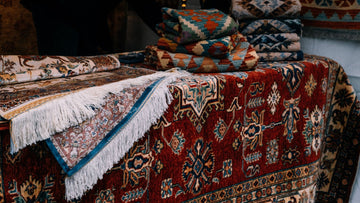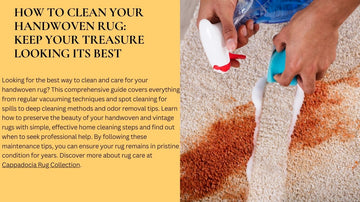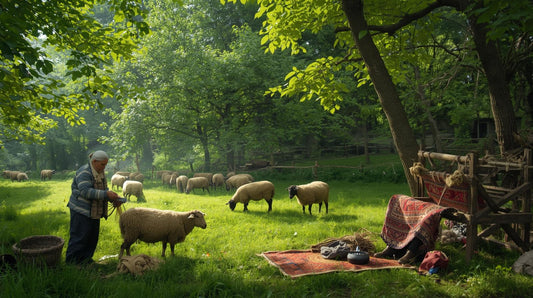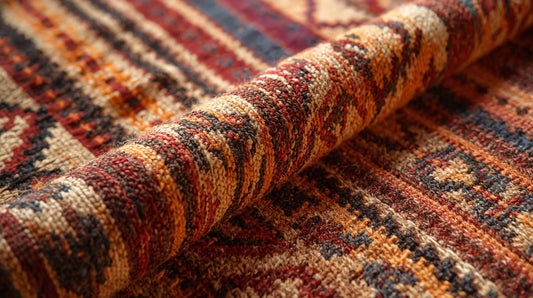The Fascinating World of Kilims: History, Meaning, and Craftsmanship

Kilims have stood as witnesses to centuries of human history, carrying deep meanings in various cultures. Beyond being just decorative pieces, kilims are cultural treasures that bring the past into the present. Let’s dive into the history, significance, and the intricate craftsmanship behind these beautiful woven masterpieces.
What is a Kilim?
A kilim is a flatwoven textile, created without knots, typically made from natural materials like wool, cotton, or silk. The primary feature of a kilim is its flat texture, which makes it more lightweight and versatile compared to knotted rugs. Kilims are not only used as floor coverings but have also served as wall hangings, furniture covers, and bags throughout history.
The Origins and History of Kilims
The art of weaving kilims dates back to ancient times. Nomadic tribes from Central Asia and Anatolia perfected the art of kilim-making, incorporating their cultural motifs and stories into each design. Kilim weaving became especially prominent in the regions of Turkey, Iran, and the Caucasus, where it became a vital part of the cultural and artistic heritage.
Anatolia (modern-day Turkey) is one of the most important centers for kilim production. Kilims woven here are unique in both technique and design. Nomadic tribes used kilims not only for decorative purposes but also for practical reasons, such as insulating tents and homes from cold weather.
The Symbolism of Kilim Motifs
One of the most striking features of kilims is the symbolic motifs woven into them. Each motif reflects the weaver’s beliefs, hopes, fears, and cultural values. Here are some common motifs and their meanings:
- Ram’s Horn (Koç Boynuzu): Symbolizes strength and masculinity, representing the power and courage of men in the family.
- Elibelinde (Hands on Hips): A fertility and femininity symbol, often used to express wishes for prosperity and marriage.
- Scorpion (Akrep): A protective symbol against evil forces. This motif is used to ward off harmful influences.
- Evil Eye (Nazarlık): A widely recognized motif that protects against negative energy and the evil eye.
- Hook (Kuçak): Represents family unity and protection, symbolizing the strength of familial bonds.
Kilim Weaving Techniques
Kilim weaving is an art form that showcases the artisan’s skill and patience. The process is carried out using traditional looms, and several techniques are commonly employed:
- Weft-Wrapping (Çapraz Dokuma): A method where the weft threads pass horizontally over the warp threads, creating a durable and vivid pattern.
- Sumak: A specialized technique where the weft threads wrap around the warp to form a raised pattern, adding texture and dimension.
- Cicim: A decorative technique used to embellish kilims with fine details and symbols on the surface, enhancing the overall beauty of the piece.
Kilims in Modern Life
Today, kilims remain popular in both traditional and modern home decor. These elegant woven pieces, carrying stories from the past, effortlessly blend with contemporary aesthetics, adding warmth and style to any space. Kilims are especially popular in boho-style interiors, where their authentic textures and vibrant colors create a distinctive atmosphere.
Kilims are also valued for their sustainability. Handmade from natural materials, they are eco-friendly compared to mass-produced items and are built to last for generations.
Kilims at Cappadocia Rug Collection

At Cappadocia Rug Collection, with nearly half a century of experience, we bring you the finest selection of handwoven kilims. Each kilim is a work of art, crafted by skilled artisans and infused with history and culture. Discover our unique kilim collection that will add warmth and an authentic atmosphere to your home.
Visit cappadociarugcollection.com to explore our collection and find the perfect piece that matches your style. Step into the enchanting world of kilims and elevate the character of your home!
No comments







0 comments